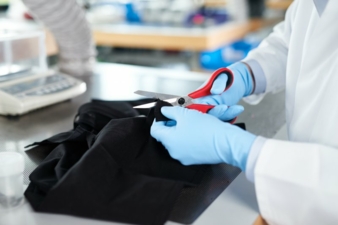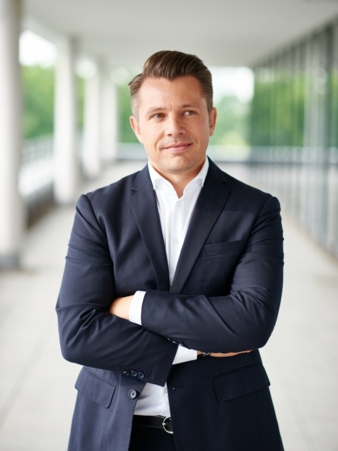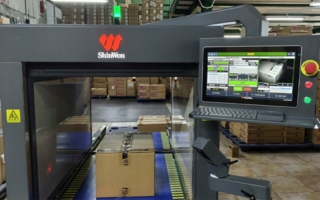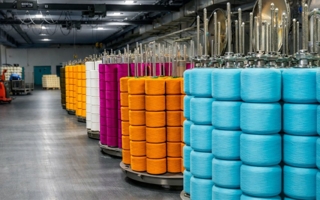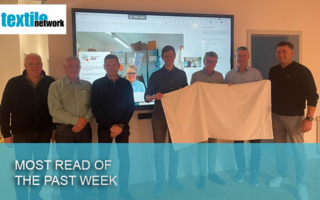17/01/2018 – Hermes Hansecontrol Group — auf Deutsch lesen
In the change of time: TIC industry
An interview with Lutz Lehmann, CEO of the Hermes Hansecontrol Group, about the challenges and increased requirements facing the TIC industry.
While China was considered the number one sourcing country a few years ago, increasing numbers of manufacturers and retailers are now outsourcing their production to countries in Southeast Asia, such as India and Myanmar. Digitisation and globalised supply chains are also leading to complex changes in industry and retail. Even the TIC industry has not been spared. Independent test institutes like the long-standing, Hamburg-based company Hermes Hansecontrol face the challenge of helping to shape these developments.
Mr Lehmann, Hermes Hansecontrol operates test laboratories in a number of countries, including China and India. Why is it so important to have a local presence?
That’s correct. Product safety checks are increasingly taking place in the country of manufacture. This has the advantage that the path from production to testing is short. It means that the manufacturers and vendors have the opportunity to improve their goods while they are still nearby. Our support also means that products can be refined or reworked even during the product development stage. Once dubious or dangerous goods are on the ship, it is too late. According to EU legislation, contaminated goods must not be exported out of the EU. This is an area that is subject to strict controls. The products are reported to the authorities and must then be improved or disposed of. This results in immense economic damage for the companies involved. The suite of services that we offer prevent such scenarios.
Legislation and country-specific requirements are also constantly changing. How does this affect your test programmes?
There is an increasing demand in breadth and depth for extended services from our laboratories. In the area of pollutant analysis alone, new pollutants are constantly added to the list of those that must be tested. On top of that, laboratories these days need to work with ever-lower limits. This in turn requires high levels of investment in highly sensitive technical equipment. This is the only way that we can keep pace with the latest technology. Investment in qualified specialist staff is also crucial. Our colleagues must be able to operate the specialised equipment. They must also know and anticipate what the market will need. In addition to our expertise in the area of testing and certification, we at Hansecontrol can also advise our customers on compliance with legal standards and current requirements.
Supply chains are increasingly networked, the economy as a whole is digitised. In practice, what effect does digitisation have on testing?
Ten years ago, the main task undertaken by the TIC industry was testing products for the European or American market. As a result of digitisation and the development of the online sales channel, the industry now faces considerably more complex issues. Increasing numbers of customers require the simultaneous testing of product safety for markets in the EU, America, China and elsewhere. Test logs and reports are also requested more and more frequently in digital form. This includes networking with customers’ IT systems. For example, Hansecontrol increasingly loads test reports, requirements profiles and other quality-related documents directly onto customer servers, enabling customers to then prepare statistics and other documents. Networking of different locations also represents a challenge. Customers want to be able to clearly view what we have already tested in our various laboratories.
More and more manufacturers are outsourcing production to Southeast Asia or Turkey. The textile industry is also turning more frequently to Africa. How do you react to this development?
As I mentioned at the beginning of this interview, it is extremely important to have a local presence. We therefore follow developments very closely. Being a member of the Otto Group is an advantage for us, and means that we constantly have our finger on the pulse of what is happening in retail and procurement. Setting up a laboratory involves high investment costs, sometimes totalling tens of millions. It is thus vitally important to keep track of developments. We will therefore continue to drive our expansion and in the coming year will expand into markets in Bangladesh and Turkey. The relevant plans have been approved by our shareholder, and I am confident that Hermes Hansecontrol will have a local presence there in 2018.
Where do you see the biggest challenges for the TIC industry in the coming years?
I believe that the greatest challenges will be in the networking of TIC services and in the provision of a supply chain management solution. In the past, the focus was on the end product. A visual inspection was sufficient. Today, the product is not only checked to make sure it is mechanically and chemically safe. Detox campaigns, such as Greenpeace’s ZDHC campaign (zero discharge of hazardous substances) have emerged within the framework of Corporate Social Responsibility, which requires that the purchase of goods is socially and ethically sound. Such campaigns receive very strong support from consumers and have an enormous influence on the work of TIC providers. In the future, we will inspect the entire manufacturing chain and the use of future chemicals. Even today, a product assessment based solely on legal requirements is scarcely enough. Rather, it is a question of offering the customer an end-to-end solution for his or her supply chain. In keeping with our motto ‘Understanding. Knowing. Making Things Possible.’, we at Hansecontrol must understand our customers and their supply chains, provide the knowledge and expertise to build up this service and use the possibilities to successfully deploy our solutions. I see digitisation as a necessary tool for the successful implementation of such a proposal.
Mr Lehmann thank you for the talking to us.

